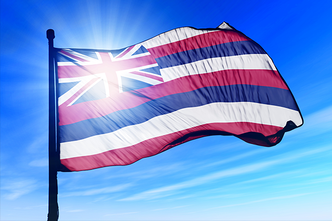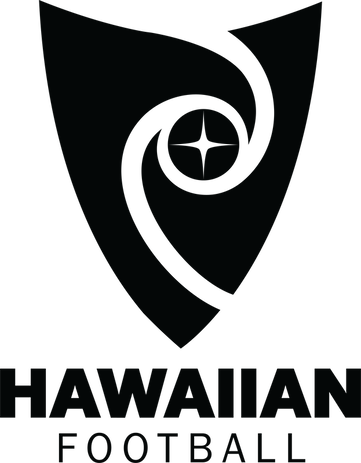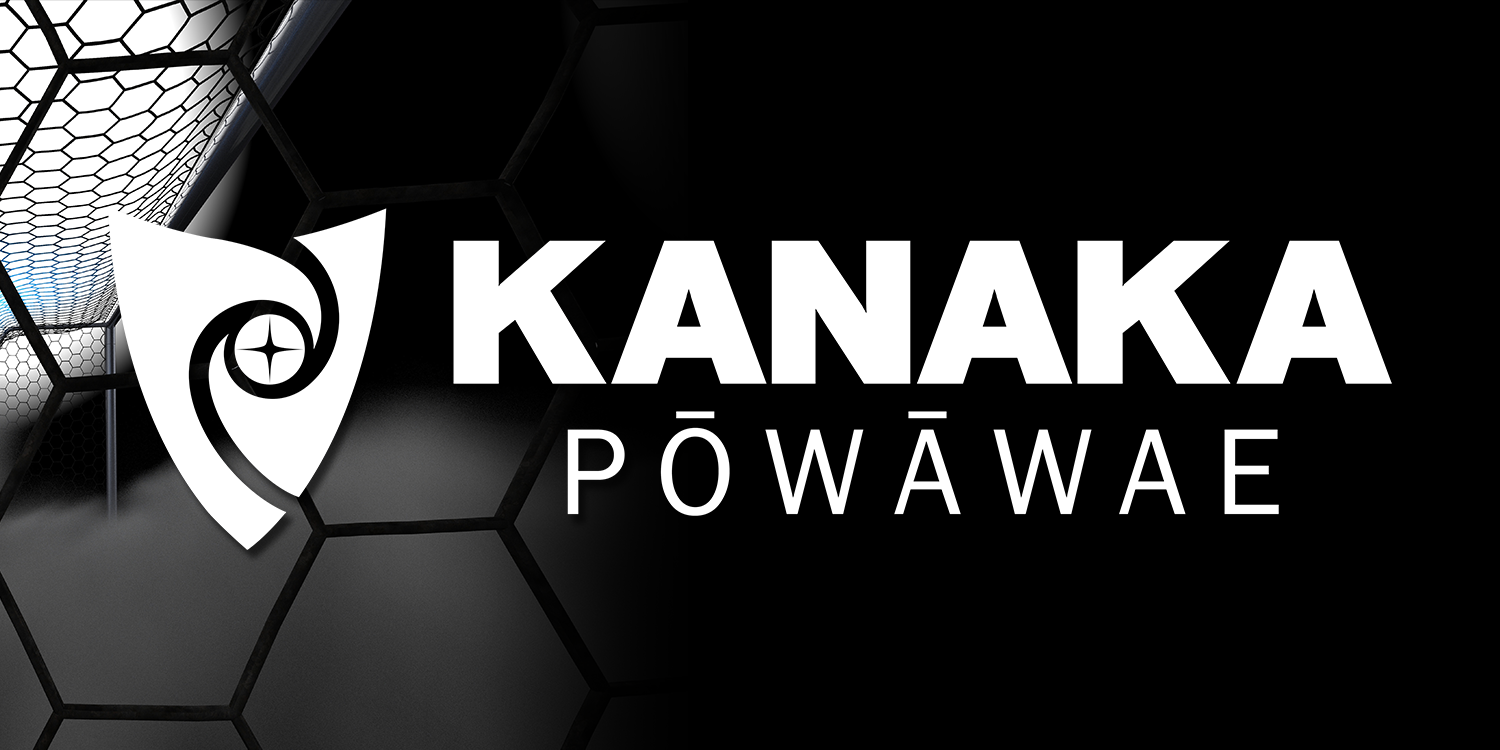|
Hello everyone and welcome back to American Pyramid! It's been a long, long time since my last interview, but that doesn't mean I haven't been working on them! It's with great pleasure that I can now release this A Nation Whose Time Has Come: Vernon Kapuaʻala of the Hui Kanaka Pōwāwae, or Hawaiian Football Federation. My best friend is a Hawaiian Islander, so when I heard about this organization, I knew I had to do an interview. And now, it is finished, and ready for your reading pleasure! Click 'Read More' for my interview with Vernon.  Tell me a little about yourself. Who you are, where you’re from, and what your role is with Hui Kanaka Pōwāwae (Hawaiian Football Federation). My name is Vernon Kapuaʻala. I was born on the island of Oʻahu; and raised on Maui. As a keiki (“child”), I played football (soccer) since the age of 6 through college. These days I coach club and high school soccer; and administer leagues and tournaments throughout Hawaiʻi. For all intents and purposes, I am the Founder and President of Hui Kanaka Pōwāwae (HKP; “Hawaiian Football Federation”). Presently, my primary duty within HKP is to establish its foundation. When people think of Hawaiʻi, soccer isn't normally what comes to mind. What is the soccer scene like in Hawaiʻi? We have a thriving football culture in the islands. The presence of U.S. Soccer affiliates – such as U.S. Youth Soccer, US Club Soccer, SAY, AYSO and U.S. Adult Soccer – have all contributed to the availability of programming since the early 70's. High School and Collegiate programs help round things out in terms of “next level”. We have not had professional or semi-professional teams since the Tsunami’s back in ’97 and Team Hawaiʻi in ’78. The economics here have not favored any type of soccer beyond college. A few Hawaiians have played or are currently playing on U.S. Girls, Women’s, and Men’s National Teams. Hawaiians and Hawaiʻi born players are even uprooting to play in the MLS and MLS academies. What’s the organization’s origin story? How did the creation of HKP come about? The idea of creating a football governing body for Hawaiʻi and Hawaiians came about by an awakening – of my country’s true history and current political status as an independent and occupied state. Growing up, we were taught of the illegal overthrow of our monarchy; the illegal annexation by the U.S., however, the vast majority of truth was left out. For the most part, we all believe(d) that – whether we liked it or not – we were Americans. Today, the terms “Hawaiian” or “Native Hawaiian” are generally understood as ethnicity – based on the American concept of race. Really, “Hawaiian” is a nationality – short for “Hawaiian subject”; a political status obtained by birth or naturalization within a monarchical system of government. Kanaka Maoli is the correct term for ethnicity or aboriginal descent. Learning this distinction changed everything for me... When I realized that I am – in fact – not just ethnically a Kanaka, but a Hawaiian National; that my country’s international identity and my nationality has been preserved and remains intact...everything clicked into place. I knew immediately, my kuleana (“responsibility”) – my service to my people and country through the Hawaiian National Football Teams. How did you first learn about CONIFA, and what did that process of joining them look like? I first learned about CONIFA several years ago, when a gentleman from Sweden reached out on social media. Years later, another individual – born and raised on Maui; currently living in El Salvador – contacted me about the same. They simply wanted to see Hawaiʻi play under its own flag. At the time, we were speaking with FIFA and the OFC, concerning Hawaiʻi’s application for membership. Ultimately, FIFA said, “no” – Hawaiʻi is not a “country”, and therefore is not eligible. In its response, FIFA cited a Court of Arbitration for Sport (CAS) case between the Football Association of Serbia v. UEFA (CAS 2016/A/4602). From our perspective, FIFA erroneously applied UEFA’s statutes to the case of Hawaiʻi; and FIFA’s laws do not address occupation – which by its very definition implies that Hawaiʻi is free. We were then left with asking permission from U.S. Soccer, and we were not ready to do so. In November 2019, I had a change of heart – to play the game, rather than play politics. Under CONIFA, a football association representing Hawaiians unequivocally qualified for membership. CONIFA responded swiftly, and graciously honored our request to announce our membership on the anniversary of Hawaiʻi’s formal recognition of independence. For those who don’t know, can you give a quick summary of what happened in Hawaiʻi in the 19th century that is the basis for wanting to start this team, and for ultimately going to FIFA at the start of your journey? In 1843, Hawaiʻi entered into a treaty with Great Britain, Ireland, and France (the Anglo-Franco Proclamation), becoming the first non-western country to achieve full recognition as an independent state and member of the Family of Nations. At the time, both aboriginal and non-aboriginal subjects resided in the islands – all Hawaiian Nationals. Other treaties followed – with Germany, Italy, Japan, Netherlands, Portugal, Russia, Spain, and the United States to name a few. In 1893, Hawaiʻi’s Queen was illegally overthrown by a group of Hawaiian-American insurgents – with support by the U.S. military. After two (2) failed attempts to lawfully annex the Hawaiian Islands, Hawaiʻi was unilaterally “annexed” by way of a Joint Resolution in 1898 – a domestic law which has no force or effect beyond the U.S.; passed as a result of the Spanish-American War. Within a month, the first U.S. military installation was established in Honolulu; and they never left. Without a treaty, I now know that Hawaiʻi is occupied – its sovereignty never lost. Because of that first treaty between the British and French governments – and the many countries that followed; because of my Queen and my people – who protested annexation till the very end; Hawaiʻi remains independent – protected by international law – however under prolonged occupation by the United States. After denationalization, Hawaiʻi has since experienced resurgences in culture, the arts, and education. The National Lawyers Guild calls the current movement a “rise in national consciousness”. My own children without a doubt know – Hawaiʻi is occupied. While enlightening and hopeful, like our 19th century aliʻi (monarchs) and 20th century scholars, I knew that international recognition was key. For me, it was “FIFA or bust”. Once I read FIFA and the OFC’s objectives concerning humanitarian rights, non-discrimination, equality and neutrality, and its definititions on what constitutes a “country” and the “Oceania Region”, I thought that surely they would do what is pono (“do what is right”). I thought FIFA and the OFC have attorneys – ideally experts in international law; and they would clearly see our dilemma – Hawaiʻi’s issue is precisely one of human rights. Even today, I still believe that FIFA and the OFC possess the extraordinary power and responsibility to uphold its own statutes and recognize my country – without discrimination as to politics. It was not until CONIFA’s Executive Committee accepted our application that I realized that part of CONIFA’s objectives is to help its members join FIFA. Regardless of where and when, FIFA is still the dream. Do you believe a true Hawaiian National Team will be readily embraced by the people of Hawaiʻi? I believe the team will immediately be embraced by Kanaka Maoli and Kanaka Hawaiʻi (Hawaiian nationals; aboriginal and non-aboriginal Hawaiians – both pure and part); and I hope the rest of Hawaiʻi will as well. This is a difficult question to answer, because we’re talking about prolonged occupation, and more than a hundred years of Americanization-denationalization. The great majority of Hawaiʻi’s residents have either been here for generations – since occupation; or moved here at some point with the belief that Hawaiʻi is a part of the U.S. To those who are unaware, the Hawaiian National Team may cause confusion. It’s very existence begs the question of nationality – i.e., one’s lawful political status as a Hawaiian subject; American citizen; dual national, etc. In our experience, people outside of Hawaiʻi can more easily grasp the truth (of occupation) – especially if they were born outside of the U.S. When the time comes, how are you going to go about scouting and selecting players for the National Team? We currently have a database of top youth players in Hawaiʻi, and we’ve been tracking Hawaiians who are currently playing in the states. We intend to supplement our scouting efforts by partnering with local organizations that monitor and report on local athletes; and will launch a social media campaign focused on finding eligible Hawaiian national team players. How soon are you hoping to see the team on the field for the first time? I already see them on the field…in my head. Realistically, it’s probably more like 12-18 months. We hope to compete in the inaugural CONIFA Women’s World Football Cup (WFC) 2021 and then the Men’s WFC in 2022. We want to take great care in how we go about things to ensure a solid foundation is in place. To start wrapping things up, where can people find out more about you and Hawaiian Football, and keep tabs on how you’re progressing?
As a final question, what would you say to people who would ask “why should I support the Hawaiian National Football Team?” Hui Kanaka Pōwāwae represents an opportunity for Hawaiians to exercise the basic patriotic and humanitarian right to represent one’s country on the international sporting stage. It is “Our Right To Football”. |
Categories
All
PartnersArchives
February 2021
|



 RSS Feed
RSS Feed
